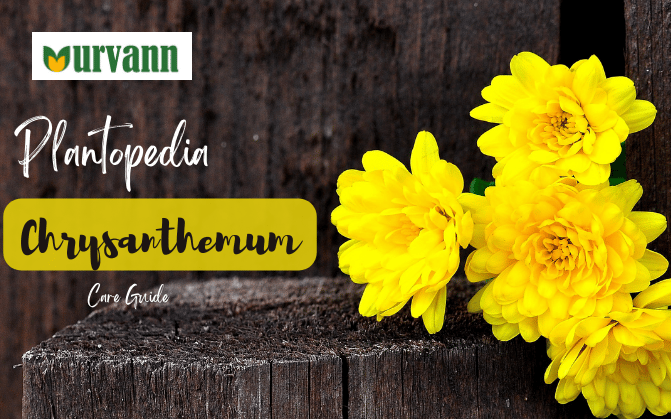The chrysanthemum, also known as mum or guldaudi or shevanti or sebati, is a beautiful flowering plant that can be used to embellish gardens and terraces. This beautiful plant is a simple way to add a beautiful splash of colour to your garden. Every gardener's dream is to have a garden full of vibrant flowers like Chrysanthemum. There is rarely any other garden flower that has a diverse and gorgeous range of colour tones, widely varying flower forms, and height ranges like these. Here`s how you may have a lush, stunning chrysanthemum garden display with a little knowledge and a few simple tips.
(Image by periwinklphotography via instagram)
Planting & flowering schedule of Chrysanthemum:
- Stem cuttings are planted in ‘monsoon’ for flowering in ‘winter’
- Seeds are sown in ‘September’ for winter flowering.
WATER, SUNLIGHT, AND SOIL CARE NEEDS OF GULDAUDI.
How to water Chrysanthemums?: This plant needs regular watering. Water the plant when the top 2 inches of the soil dries out.
Should we grow Chrysanthemums indoors or outdoors?: Chrysanthemum needs full bright sunlight. Prefer to keep them where there is lots of sunshine in order to help flowers develop naturally .
(Image by the. gracious.gardener via instagram)
Which type of soil should we grow Chrysanthemums in? A rich soil mix with equal proportion of vermicompost, cocopeat, and sand is preferable while planting chrysanthemum.
COMMON PROBLEMS WITH CHRYSANTHEMUM AND CARE
Yellowing of leaves- Chrysanthemum that are planted in heavy soil or soil that drains poorly are not happy plants. The plants need well-draining soil to thrive. If the soil doesn’t release water, the roots drown and you see your chrysanthemum plant yellowing.
White Powdery Spots / Mildew- It is a fungal disease and its ashy growths can show up on leaves, flower parts, or stems. If you see powdery mildew on chrysanthemums, you can fight the fungal disease with fungicides. To prevent this, you can also add some neem cake powder at the time of preparing soil mix and every 15-20 days
Chrysanthemum turning brown- The leaves and roots get affected due to extremely dry or wet surroundings. Other than that, fungal infections and pest infestation are responsible for the leaves and roots turning brown.
(Image by shipramidya via instagram)
Chrysanthemum comes in beautiful shades of white, cream, orange, peach, yellow, pastel pink, purple, to red. However, these ornamental plants for grown for a number of reasons other than being just attractive.
According to a NASA study, chrysanthemums aid in the reduction of air pollution.
Not only this, according to feng shui, this flower is believed to bring happiness and laughter to the home. In both China and Japan chrysanthemums are regarded as a powerful emblem of youth. They believed that a petal of this flower when placed in the bottom of a glass of wine enhanced longevity.
Chrysanthemum flowers have been used in traditional Chinese medicine for centuries. It may help increase blood flow and have anti-histamine, antibacterial and anti-inflammatory properties.
And that’s basically the gist of it. Keeping your Guldaudi Plants healthy and happy is easy when you provide what it needs – adequate water, the right temperatures, and plenty of light!
Do you have any other issues in growing these beautiful flowers? Let us know in comments below

.jpg)
.jpg)
.jpg)

0 Comment